Text
What to Read for Current Affairs for UPSC Preparation

Preparing for the Union Public Service Commission (UPSC) examination demands a thorough understanding of UPSC current affairs, as it forms a significant portion of the syllabus. Current affairs encompass a wide range of topics, including national and international events, government policies, economic developments, social issues, scientific advancements, and more. To effectively prepare for current affairs in the UPSC examination, aspirants need to identify the right sources and materials to read. Here's a comprehensive guide on what to read for today current affairs for UPSC preparation:
Newspapers:
The Hindu: Renowned for its comprehensive coverage and unbiased reporting, The Hindu is a preferred newspaper for UPSC aspirants. It covers national and international news, editorials, and analysis that are relevant for the exam.
Indian Express: Another popular choice among UPSC aspirants, Indian Express provides in-depth coverage of current affairs, including detailed analyses and opinions on significant events.
Magazines:
Yojana: Published by the Government of India, Yojana focuses on socio-economic issues and government schemes. It offers insightful articles and analyses that are beneficial for UPSC preparation.
Kurukshetra: This magazine emphasizes rural development and government initiatives in rural areas. It provides valuable insights into various government schemes and policies relevant for UPSC aspirants.
Monthly Current Affairs Magazines:
Civil Services Chronicle: Known for its extensive coverage of current affairs, Civil Services Chronicle offers monthly magazines with updates on national and international events, along with practice questions and analysis.
Pratiyogita Darpan: A popular magazine for competitive exams, Pratiyogita Darpan provides current affairs updates, general knowledge articles, and previous years' question papers, aiding UPSC aspirants in their preparation.
Government Reports and Websites:
PIB (Press Information Bureau): PIB releases official press releases, government announcements, and updates on various government initiatives. It is a reliable source for UPSC aspirants to stay updated on government policies and programs.
PRS Legislative Research: PRS Legislative Research offers insights into parliamentary proceedings, bills, and policies. It provides detailed analyses of important legislative developments that are crucial for UPSC preparation.
Online Platforms and Blogs:
KGS IAS: KGS IAS is an online platform offering study materials, mock tests, and current affairs updates specifically tailored for UPSC aspirants.
Annual Reports and Surveys:
Economic Survey: Published by the Ministry of Finance, the Economic Survey provides insights into the state of the Indian economy, fiscal policies, and economic trends. It is an essential read for UPSC aspirants preparing for the economy-related topics.
India Year Book: Published by the Publications Division, Ministry of Information and Broadcasting, the India Year Book offers comprehensive information on various aspects of India's governance, economy, and society.
In conclusion, preparing for current affairs in the UPSC examination requires a multi-dimensional approach, encompassing newspapers, magazines, government reports, online platforms, and annual publications. Aspirants should adopt a structured study plan, regularly update themselves with relevant information, and practice answer writing to effectively tackle current affairs-related questions in the UPSC examination.This article was originally published by medium.com/@upsccourses. Read the original article here.
0 notes
Text
Which Monthly Current Affairs Magazine is Best for UPSC?

Preparing for the Union Public Service Commission (UPSC) examination requires staying updated with UPSC current affairs from various fields. Candidates need to have a comprehensive understanding of current events and issues to excel in this examination. To aid in this preparation, choosing the right monthly current affairs magazine becomes crucial.
1. Yojana Magazine
Yojana is a monthly magazine published by the Government of India. It covers a wide range of topics including social, economic, and political issues. The content is well-researched and provides in-depth analysis, making it highly beneficial for UPSC aspirants.
2. Civil Services Chronicle
Civil Services Chronicle is another popular magazine among UPSC aspirants. It covers daily current affairs comprehensively and also includes articles on topics relevant to the UPSC syllabus. The magazine offers both national and international coverage, catering to the diverse needs of aspirants.
3. Pratiyogita Darpan
Pratiyogita Darpan is one of the most widely read magazines for competitive exams in India. It provides current affairs updates along with articles on general knowledge and current events. The magazine also includes practice questions and previous years' question papers, which can be valuable for UPSC preparation.
4. The Hindu / Indian Express
While not monthly magazines per se, newspapers like The Hindu and Indian Express are known for their extensive coverage of current affairs. Many UPSC aspirants rely on these newspapers for daily updates and analysis of important events. Additionally, both newspapers offer monthly compilations of current affairs, which can serve as a supplement to magazine readings.
5. Kurukshetra Magazine
Kurukshetra is a monthly magazine focusing on rural development, published by the Government of India. It covers various government schemes, policies, and initiatives related to rural areas. As many UPSC questions are based on government schemes and policies, reading Kurukshetra can provide valuable insights.
In conclusion, there are several monthly current affairs magazines available for UPSC preparation, each offering unique features and content. It's essential for aspirants to choose the magazine that aligns with their study preferences and provides comprehensive coverage of current affairs relevant to the UPSC syllabus. Additionally, combining magazine readings with newspaper analyses and online resources can further enhance one's preparation strategy for the UPSC examination.
This article was originally published by medium.com/@upsccourses. Read the original article here.
0 notes
Text
Which current affairs material is best for UPSC

Preparing for the UPSC (Union Public Service Commission) exams demands comprehensive and strategic preparation. Among the various components of the UPSC syllabus, current affairs play a pivotal role. However, with a plethora of current affairs materials available in the market, aspiring candidates often find themselves perplexed about which one to rely on. In this article, we will delve into the different types of UPSC current affairs material available and explore which one suits UPSC preparation the best.
Introduction to UPSC Preparation
Before diving into the specifics of current affairs material, let's understand why it holds such significance in UPSC preparation. The UPSC conducts some of the most challenging competitive exams in India, including the Civil Services Examination (CSE), commonly known as the IAS exam. Current affairs, encompassing national and international events, government policies, socio-economic issues, and more, are integral parts of the UPSC syllabus. Aspiring civil servants need to stay abreast of daily current affairs to crack these exams successfully.
Types of Current Affairs Material
Newspapers
Newspapers have been a traditional source of current affairs for UPSC aspirants. Publications like The Hindu, The Indian Express, and The Economic Times are highly recommended due to their comprehensive coverage and analytical articles.
Magazines
Magazines like Yojana, Kurukshetra, and Frontline offer in-depth analysis of current affairs topics, making them valuable resources for UPSC preparation.
Online Portals
Websites like InsightsonIndia, ClearIAS, and CivilsDaily provide curated content, daily updates, and practice questions, making them convenient options for UPSC aspirants.
Yearly Compilations
Books compiling yearly current affairs, such as Chronicle Yearbook and Manorama Yearbook, are popular among UPSC candidates for quick revisions and reference.
Coaching Institutes' Material
Many coaching institutes offer specialized study material focusing on current affairs, catering specifically to the requirements of UPSC aspirants.
Conclusion
Choosing the right current affairs material is crucial for UPSC aspirants to stay updated and well-prepared for the exams. By considering factors like relevance, quality, and cost-effectiveness, candidates can select material that best suits their requirements. Additionally, effective utilization of chosen material through consistent study and revision is essential for success in UPSC exams.
This article was originally published by medium.com/@upsccourses. Read the original article here.
0 notes
Text
Which current affairs are best for UPSC
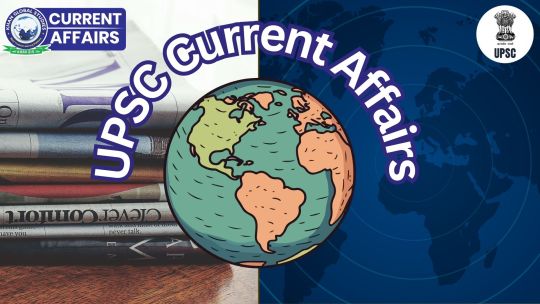
Introduction to UPSC
The Union Public Service Commission (UPSC) conducts various examinations to recruit candidates for prestigious government services in India. One of the most renowned exams conducted by UPSC is the Civil Services Examination (CSE), commonly known as the UPSC exam.
Importance of Current Affairs in UPSC Preparation
Understanding the UPSC Exam
The UPSC exam is renowned for its comprehensive syllabus, which includes diverse topics ranging from history and geography to UPSC current affairs. While the static portion of the syllabus remains constant, the dynamic nature of current affairs necessitates continuous updating and awareness.
Role of Current Affairs
Daily Current affairs play a pivotal role in all three stages of the UPSC exam - Prelims, Mains, and Interview. It helps candidates in understanding the contemporary issues, analyzing their implications, and formulating well-rounded perspectives.
How to Choose Current Affairs Topics for UPSC Preparation
Relevance to UPSC Syllabus
Candidates should prioritize topics that align with the UPSC syllabus. This includes subjects such as polity, economy, environment, science, and technology.
Recent Events and Trends
Focus on recent events and trends that are likely to have a significant impact on national and international affairs. These events often reflect the evolving socio-political and economic landscape.
National and International Importance
Identify topics of national and international importance, as questions in the UPSC exam often revolve around issues with far-reaching consequences.
Best Sources for Current Affairs for UPSC
Newspapers
Newspapers like The Hindu, The Indian Express, and Business Standard are renowned for their comprehensive coverage of current affairs.
Magazines
Magazines such as Yojana, Kurukshetra, and Frontline provide in-depth analysis and insights into various socio-economic and political issues.
Websites and Apps
Online platforms like PRS India, PIB, and Rajya Sabha TV offer regular updates and summaries of important government initiatives and policies.
Government Reports and Publications
Government reports and publications, such as the Economic Survey and Budget, serve as valuable sources of information for UPSC aspirants.
Strategies for Effective Current Affairs Preparation
Regular Reading and Note-taking
Develop a habit of daily newspaper reading and make concise notes of important events, issues, and their implications.
Revision Techniques
Employ effective revision techniques such as mind maps, flashcards, and regular quizzes to reinforce learning and retention.This article was originally published by medium.com/@upsccourses. Read the original article here.
0 notes
Text
Introduction to Making Notes for UPSC Current Affairs

In the journey of UPSC preparation, current affairs hold a pivotal position. It's not merely about being updated with the latest happenings; rather, it's about understanding their implications, analyzing their relevance, and incorporating them effectively into your preparation strategy. One crucial aspect of mastering current affairs is note-making. This article will delve into the intricacies of making notes for UPSC current affairs and provide comprehensive guidance on optimizing this process.
Understanding the Importance of Current Affairs in UPSC Exam
Importance of Current Affairs Preparation
In the dynamic landscape of the UPSC examination, current affairs act as the pulse. They reflect the contemporary socio-political, economic, and environmental developments that shape the world around us. Hence, staying abreast of current affairs is not just a choice but a necessity for aspirants aiming to crack the UPSC exam.
Significance in Various Stages of UPSC Exam
Whether it's the preliminary stage, where current affairs form a significant chunk of the General Studies paper, or the mains stage, where they are integral to essay writing, answer writing, and the interview process, current affairs play a multifaceted role. Hence, meticulous preparation and effective note-making become indispensable.
Guidelines for Making Effective Notes
Selecting Reliable Sources
The first step in note-making for UPSC daily current affairs is to identify credible sources. While newspapers like The Hindu, Indian Express, and magazines like Yojana and Kurukshetra are popular choices, online platforms, government reports, and official websites of ministries also offer valuable insights.
Organizing Notes Systematically
Organizational skills are paramount in note-making. Structuring notes systematically based on subjects, themes, or chronology facilitates easy retrieval and revision. Utilizing notebooks, digital tools, or index cards can aid in maintaining a coherent system.
Utilizing Technology Tools
In the digital age, technology can be a boon for note-making. Apps like Evernote, OneNote, or simply Google Docs offer features like tagging, highlighting, and cloud storage, enhancing accessibility and flexibility.
Tips for Efficient Note-taking
Active Reading Techniques
Instead of passive consumption, adopt active reading techniques like SQ3R (Survey, Question, Read, Recite, Review) to engage with the content actively. This ensures better comprehension and retention.
Summarizing and Simplifying Information
Condense complex information into concise summaries. Focus on capturing key points, relevant data, and critical insights, avoiding unnecessary details.
Using Visual Aids
Incorporate visual aids like diagrams, flowcharts, or mind maps to represent information visually. Visual learning enhances understanding and aids in recalling information during revision.
This article was originally published by medium.com/@upsccourses. Read the original article here.
0 notes
Text
How to Cover Current Affairs for UPSC in 2 Months: An Effective Strategy Guide
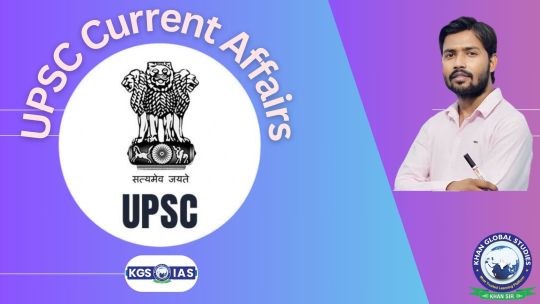
Introduction
Preparing for the UPSC examination within a limited timeframe necessitates strategic planning and focused execution. As current affairs constitute a significant portion of the syllabus, aspirants often seek efficient methodologies to cover this aspect comprehensively. This article elucidates effective strategies to cover UPSC current affairs in just two months, emphasizing the integration of daily updates to enhance retention and analytical skills.
Understanding the Importance of UPSC Current Affairs
UPSC Current Affairs: A Crucial Component
Current affairs serve as a crucial determinant of success in the UPSC examination, reflecting the commission's emphasis on candidates' awareness of contemporary issues. Aspirants must recognize the significance of staying updated with recent developments to tackle questions comprehensively across all stages of the examination.
The Role of Daily Current Affairs
Daily current affairs play a pivotal role in shaping aspirants' understanding and analytical abilities. By incorporating daily updates into their study routine, aspirants cultivate a habit of critical analysis and develop a nuanced perspective essential for navigating the dynamic landscape of UPSC examinations.
Strategies to Cover Current Affairs in 2 Months
Establishing a Structured Study Plan
Creating a structured study plan is imperative to cover current affairs effectively within a two-month timeframe. Allocate dedicated time slots each day for current affairs review, focusing on both comprehensive coverage and targeted revisions to maximize efficiency.
Prioritizing Topics Based on Relevance
Prioritize topics based on their relevance to the UPSC syllabus and prevailing socio-political dynamics. Focus on themes such as governance, international relations, economy, environment, and social issues, allocating more time to areas with greater weightage in previous examinations.
Utilizing Condensed Study Materials
Opt for condensed study materials such as current affairs magazines, concise notes, and curated online resources to streamline your preparation process. These materials provide a succinct overview of key events and topics, facilitating efficient revision and retention.
Engaging with Interactive Learning Platforms
Utilize interactive learning platforms and online quizzes to reinforce your understanding of current affairs topics. Engaging with practice questions and mock tests enhances retention and aids in identifying areas that require further review and clarification.
Incorporating Daily Current Affairs into Your Routine
Creating a Daily Routine
Devote specific time slots each day for reviewing current affairs, preferably during mornings or evenings when your concentration levels are optimal. Incorporate a variety of sources such as newspapers, news applications, and online platforms to ensure comprehensive coverage.
Taking Structured Notes
Take structured notes while reviewing daily current affairs to capture key points and insights effectively. Organize your notes based on thematic categories or subjects, facilitating easier recall and revision during subsequent study sessions.
Actively Engaging with the Material
Engage actively with current affairs by critically analyzing events, identifying their significance, and reflecting on their implications. Foster discussions with peers, mentors, or online forums to gain diverse perspectives and deepen your understanding of complex issues.
This article was originally published by medium.com/@upsccourses. Read the original article here.
0 notes
Text
How to Cover 1 Year Current Affairs for UPSC: A Comprehensive Guide
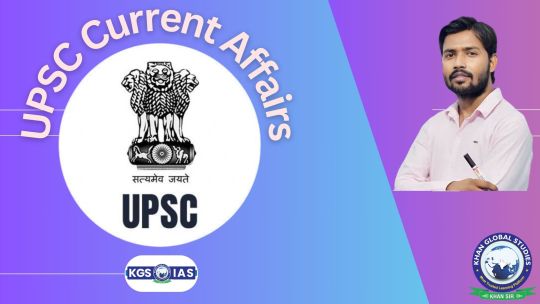
Introduction
Preparing for the UPSC examination entails comprehensive coverage of current affairs, a crucial component of the syllabus. Aspirants often grapple with the challenge of assimilating vast amounts of information from the past year while staying abreast of daily developments. This article elucidates effective methodologies to navigate through one year of UPSC current affairs, emphasizing the significance of integrating daily updates into your study regimen.
Understanding the Significance of UPSC Current Affairs
UPSC Current Affairs: A Key Determinant of Success
Current affairs constitute a significant portion of the UPSC examination, reflecting the commission's emphasis on assessing candidates' awareness of contemporary issues. Aspirants must recognize the pivotal role of current affairs in shaping their preparation strategy and performance in the examination.
The Relevance of Daily Current Affairs
Daily current affairs serve as building blocks for UPSC preparation, fostering a deeper understanding of ongoing events and their implications. By incorporating daily updates into their study routine, aspirants cultivate analytical skills and develop a nuanced perspective essential for answering UPSC questions comprehensively.
Strategies to Cover 1 Year of Current Affairs Effectively
Establishing a Structured Study Plan
Developing a structured study plan is imperative to systematically cover one year of current affairs. Allocate dedicated time slots for daily current affairs review, weekly comprehensive revisions, and monthly assessments to ensure consistent progress and retention of information.
Prioritizing Topics Based on Relevance
Prioritize topics based on their relevance to the UPSC syllabus and prevailing socio-political dynamics. Focus on themes such as governance, international relations, economy, environment, and social issues, allocating more time to areas with greater weightage in previous examinations.
Utilizing Reliable Sources
Identify reliable sources for current affairs that provide comprehensive coverage and unbiased analysis. Newspapers like The Hindu and The Indian Express, along with reputable online platforms and news applications, offer credible insights into national and international events.
Engaging with Diverse Formats
Engage with current affairs through diverse formats such as newspapers, magazines, online articles, podcasts, and documentaries. Utilizing multiple mediums enhances comprehension and retention, catering to different learning preferences and styles.
Incorporating Daily Current Affairs into Your Routine
Creating a Habitual Routine
Integrate daily current affairs review into your daily routine, preferably during mornings or evenings when you're most alert. Allocate a specific timeframe for reading newspapers, watching news channels, or accessing online platforms to stay updated with the latest developments.
Taking Notes and Summarizing
Take concise notes while reviewing daily current affairs to capture key points and insights. Summarize complex issues and events in your own words, facilitating better understanding and retention of information for future reference.
Active Engagement and Reflection
Engage actively with current affairs by critically analyzing events, identifying their significance, and reflecting on their implications. Foster discussions with peers, mentors, or online forums to gain diverse perspectives and deepen your understanding of complex issues.
This article was originally published by medium.com/@upsccourses. Read the original article here.
0 notes
Text
How old current affairs are asked in UPSC?
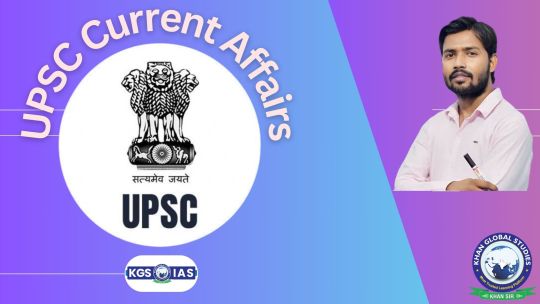
Introduction
Understanding how UPSC assesses current affairs is crucial for aspirants aiming to crack the prestigious examination. With the evolving pattern of questions, integrating recent events into your preparation strategy becomes paramount. This article delves into the intricacies of how old current affairs are asked in UPSC, shedding light on the significance of staying updated with daily current affairs.
UPSC Current Affairs: The Core of Civil Services Examination
UPSC Current Affairs: The Lifeline of UPSC Preparation
In the realm of UPSC preparation, current affairs serve as the heartbeat of the Civil Services Examination. Aspirants must recognize that UPSC doesn't merely test factual knowledge but also evaluates their understanding of contemporary events and their implications.
The Role of Daily Current Affairs
Daily UPSC current affairs play a pivotal role in shaping an aspirant's perspective and analytical abilities. Incorporating daily updates enhances one's comprehension of national and international developments, fostering a holistic understanding essential for acing the UPSC examination.
The Dynamics of UPSC Questioning: Incorporating Recent Developments
Infusing Recent Developments into UPSC Preparation
UPSC's penchant for dynamic questioning necessitates aspirants to align their preparation with current trends. Questions often revolve around recent socio-political, economic, and environmental events, underscoring the importance of staying abreast of contemporary issues.
Adopting a Strategic Approach
While the relevance of older current affairs cannot be dismissed, aspirants must prioritize recent developments in their preparation strategy. Strategic allocation of time to cover both old and new current affairs ensures a comprehensive understanding of the evolving landscape.
Unraveling the Evaluation Process: How UPSC Assesses Current Affairs
Incorporating Current Affairs into the Syllabus
UPSC integrates current affairs across various stages of the examination, including prelims, mains, and the interview. Questions may range from factual inquiries to those demanding critical analysis, underscoring the need for a multifaceted preparation approach.
Analytical Assessment
UPSC evaluates aspirants' analytical skills by presenting them with scenarios necessitating a nuanced understanding of current affairs. Aspirants are expected to demonstrate the ability to analyze events from multiple perspectives, showcasing their comprehension and analytical prowess.
This article was originally published by medium.com/@upsccourses. Read the original article here.
0 notes
Text
How to Prepare UPSC Current Affairs Without Reading Newspaper
Preparing for the Union Public Service Commission (UPSC) examination demands comprehensive knowledge of current affairs. While traditional methods often emphasize newspaper reading, there are alternative approaches to stay updated without solely relying on print media. This article will delve into effective strategies to prepare UPSC current affairs without reading newspapers, focusing on utilizing online resources, mobile applications, and daily current affairs updates.
Importance of UPSC Current Affairs
Before exploring alternative sources, it's crucial to understand the significance of staying updated with current affairs for UPSC preparation. Current affairs encompass a wide array of topics including national and international events, government policies, socio-economic issues, and scientific advancements. A strong grasp of current affairs not only aids in answering specific questions but also enhances analytical skills and provides a broader understanding of various subjects, thereby increasing the chances of success in the UPSC examination.
Challenges with Newspaper Reading
While newspapers have been a traditional source of information, several challenges hinder their effectiveness in UPSC preparation:
Time constraints: Reading newspapers daily can be time-consuming, especially for aspirants juggling multiple subjects or working professionals.
Information overload: Newspapers contain vast amounts of information, making it challenging to filter out relevant content amidst numerous articles and advertisements.
Alternative Sources for UPSC Current Affairs
Online Platforms
Online platforms offer curated content specifically tailored for UPSC current affairs. Websites such as UPSC Current Affairs Daily and Insights on India provide daily updates, analysis, and quizzes to help aspirants stay abreast of important developments.
Mobile Applications
Mobile applications have revolutionized UPSC preparation by providing convenient access to current affairs content on-the-go. Apps like ClearIAS, Civilsdaily, and Daily Current Affairs for UPSC offer daily news summaries, quizzes, and customizable study plans.
Daily Current Affairs Updates
Several websites and platforms offer daily current affairs updates delivered directly to your inbox. Subscribing to newsletters from reputable sources like PRS Legislative Research and The Hindu Editorial Analysis ensures a steady stream of relevant news without the need for extensive newspaper reading.
Creating a Study Schedule
To effectively incorporate current affairs into your UPSC preparation routine, it's essential to create a structured study schedule:
Daily Allocation of Time: Dedicate a specific time slot each day for current affairs study, ensuring consistency and regularity in your preparation.
Weekly Review Sessions: Set aside time for weekly review sessions to reinforce learning, revise important topics, and identify areas that require further focus.
Utilizing Technology for Efficiency
Technology plays a vital role in optimizing UPSC current affairs preparation:
Customizing News Feeds: Utilize RSS feeds or news aggregator apps to customize your news feed based on UPSC-relevant topics and sources.
Setting Alerts: Set up alerts for specific keywords or topics to receive real-time updates on important developments, enabling timely and efficient studying.
Conclusion
Preparing UPSC current affairs without reading newspapers is entirely feasible with the plethora of alternative sources available today. By leveraging online platforms, mobile applications, and daily current affairs updates, aspirants can stay well-informed and enhance their chances of success in the UPSC examination.
This article was originally published by medium.com/@upsccourses. Read the original article here.
0 notes
Text
How to Cover Current Affairs for UPSC Prelims
Introduction
Preparing for the UPSC Prelims requires a strategic approach, and staying updated with current affairs is an integral part of the preparation process. The UPSC examination is known for its extensive syllabus, and current affairs play a crucial role in determining the success of aspirants. In this guide, we will explore effective strategies to cover UPSC current affairs, focusing on daily updates and comprehensive preparation techniques.
Understanding the Significance of UPSC Current Affairs
UPSC current affairs encompass a wide range of topics, including national and international events, government policies, socio-economic issues, environmental concerns, and technological advancements. It is essential for UPSC aspirants to stay abreast of these developments as they form a significant portion of the examination syllabus. Current affairs questions not only test the candidate's awareness but also evaluate their analytical abilities and understanding of contemporary issues.
Incorporating Daily Current Affairs Updates
1. Read Newspapers Regularly
Reading newspapers like The Hindu, The Indian Express, or The Hindustan Times on a daily basis is a fundamental practice for UPSC aspirants. These newspapers provide comprehensive coverage of national and international events, along with insightful analysis and editorials.
2. Follow Reputable Online Sources
In addition to traditional newspapers, aspirants can also rely on reputable online sources for daily current affairs updates. Websites such as PIB (Press Information Bureau), PRS (PRS Legislative Research), and government portals offer reliable information on government policies, initiatives, and official announcements.
3. Watch News Channels and Listen to Radio Programs
Watching news channels and listening to radio programs can also provide valuable insights into current affairs. Programs like Rajya Sabha TV's 'Big Picture' and All India Radio's 'Spotlight' offer in-depth analysis and discussions on various socio-political issues.
Strategies for Comprehensive UPSC Current Affairs Preparation
1. Make Concise Notes
While consuming daily current affairs updates, it is essential to make concise notes summarizing key points and relevant facts. Organizing information in a structured manner facilitates quick revision and retention.
2. Create a Study Schedule
Developing a study schedule dedicated to current affairs preparation ensures consistent and systematic coverage of the syllabus. Allocate specific time slots each day for reading, note-taking, and revision.
3. Utilize Technology
Leverage technology to streamline current affairs preparation. Mobile applications, online platforms, and social media channels offer curated content, quizzes, and interactive learning resources tailored for UPSC aspirants.
4. Practice Answer Writing
Regular practice of answer writing is crucial for UPSC preparation, including current affairs-based questions. Practice writing concise and coherent answers to sample questions, focusing on clarity, accuracy, and analytical depth.
Conclusion
In conclusion, covering current affairs for UPSC Prelims requires a multi-faceted approach combining daily updates with comprehensive preparation strategies. By incorporating daily reading habits, utilizing reputable sources, making concise notes, creating a structured study schedule, and leveraging technology, aspirants can enhance their knowledge base and ace the examination with confidence.
This article was originally published by medium.com/@upsccourses. Read the original article here.
0 notes
Text
How Many Months of Current Affairs Should You Cover for UPSC Prelims?
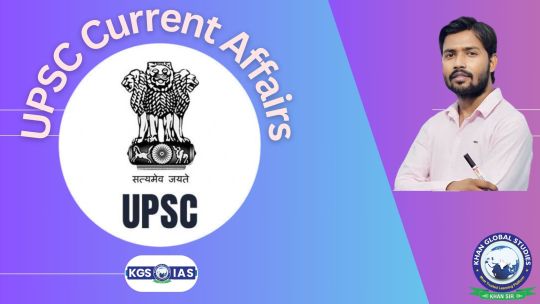
Introduction to UPSC Prelims
When aspiring for the prestigious Union Public Service Commission (UPSC) examination, thorough preparation is the key to success. UPSC conducts various stages of examinations, and one of the initial phases is the UPSC Prelims.
What is UPSC?
The Union Public Service Commission is India's premier central recruiting agency responsible for appointments to and examinations for All India services and group A & group B of Central services. Every year, lakhs of candidates appear for the UPSC examination to secure positions in the civil services.
Significance of UPSC Prelims
The UPSC Prelims acts as a screening test for the UPSC Main Examination. It consists of two papers, namely, General Studies Paper I and General Studies Paper II (CSAT). Only candidates who clear the UPSC Prelims are eligible to appear for the Main Examination.
Understanding Current Affairs for UPSC Prelims
Definition of Current Affairs
Current affairs encompass a wide range of subjects, including national and international events, government policies, socio-economic issues, environmental concerns, and technological advancements. It is crucial for UPSC aspirants to stay updated with current affairs as it forms an integral part of the examination syllabus.
Importance in UPSC Preparation
Current affairs play a pivotal role in the UPSC Prelims as well as the Main Examination. Questions related to current events are frequently asked in both papers, assessing the candidate's awareness and analytical abilities.
Duration of Current Affairs Preparation
Short-term vs. Long-term Approach
One of the common dilemmas among UPSC aspirants is the duration of current affairs preparation. Some prefer adopting a short-term approach, focusing on recent events closer to the examination date, while others opt for a long-term strategy, covering a broader timeframe.
Ideal Duration for Current Affairs Preparation
Ideally, UPSC aspirants should aim to cover current affairs spanning at least 12 to 18 months preceding the examination date. This duration ensures comprehensive coverage of significant events and developments relevant to the examination.
UPSC Current Affairs: A Comprehensive Guide
Sources for UPSC Current Affairs
UPSC aspirants can access current affairs through various mediums, including newspapers, magazines, online portals, government reports, and official websites. Additionally, dedicated current affairs compilations and monthly magazines tailored for UPSC preparation are available in the market.
Strategies for Effective Preparation
To effectively cover UPSC current affairs, aspirants should adopt a structured approach. This includes daily reading of newspapers, making concise notes, organizing information subject-wise, and regular revision to reinforce retention.
Daily Current Affairs: Key to Success
Advantages of Daily Current Affairs Updates
Incorporating daily current affairs updates into the study routine offers several benefits. It ensures a consistent flow of information, enhances analytical skills, improves memory retention, and keeps aspirants abreast of recent developments.
Incorporating Daily Current Affairs into Study Routine
UPSC aspirants should allocate a dedicated time slot each day for reading and analyzing current affairs. It is advisable to utilize reliable sources and prioritize topics based on relevance to the UPSC syllabus.
Recommended Timeframe for Current Affairs Coverage
Balancing Depth and Breadth
While covering current affairs, aspirants must strike a balance between depth and breadth of knowledge. It is essential to delve deep into significant events while also maintaining a broad understanding of diverse subjects.
Creating a Study Schedule
Aspirants can create a study schedule that allocates specific time slots for current affairs preparation, revision, and mock tests. This structured approach ensures effective time management and systematic coverage of the syllabus.
Importance of Revisions in Current Affairs Preparation
Retention Techniques
To retain information effectively, UPSC aspirants can employ various techniques such as mind maps, flashcards, mnemonic devices, and regular self-assessment quizzes. Revision aids in reinforcing learning and identifying areas that require further clarification.
Regular Revision Patterns
Integrating regular revisions into the study routine is crucial for long-term retention. Aspirants should revise previously covered topics periodically, gradually increasing the recall intervals to enhance memory consolidation.
Expert Tips for Current Affairs Preparation
Utilizing Technology
Harnessing technology can streamline current affairs preparation. Aspirants can leverage mobile applications, online platforms, and social media channels to access curated content, participate in discussion forums, and stay updated on the go.
Joining Study Groups
Collaborating with fellow UPSC aspirants through study groups or online forums facilitates knowledge sharing, peer learning, and mutual motivation. Group discussions, mock tests, and resource sharing enhance comprehension and boost confidence levels.
Conclusion
In conclusion, effective preparation of current affairs is indispensable for UPSC aspirants aiming to crack the Prelims examination. By adopting a comprehensive approach, incorporating daily updates, maintaining a structured study schedule, and leveraging revision techniques, aspirants can enhance their knowledge base and ace the examination with confidence.
This article was originally published by medium.com/@upsccourses. Read the original article here.
0 notes
Text
Introduction to UPSC Current Affairs
The Union Public Service Commission (UPSC) conducts some of the most prestigious and competitive exams in India, including the Civil Services Examination (CSE). Among the various components of these exams, UPSC current affairs hold significant importance. UPSC aspirants need to stay updated with the latest events, developments, and issues both nationally and internationally. In this article, we'll delve into the significance of current affairs in UPSC exams, how to prepare for them effectively, and why they play a crucial role in the selection process.
Understanding the Importance of Current Affairs in UPSC Exams
Current affairs serve as a window to the world, providing insights into political, economic, social, environmental, and technological happenings. For UPSC aspirants, staying informed about current affairs is indispensable for several reasons:
1. Relevance in Exam Syllabus
The UPSC syllabus explicitly mentions current events of national and international importance. Questions related to current affairs are asked in various stages of the examination, including the Preliminary Exam, Mains Exam, and Personality Test (Interview).
2. Analytical Skills Assessment
Current affairs-based questions test candidates' analytical skills, critical thinking abilities, and their capacity to understand the implications of recent events on society, governance, and policymaking.
3. Understanding of Contemporary Issues
UPSC aspirants are expected to have a deep understanding of contemporary issues, ranging from socio-economic challenges to geopolitical developments. This knowledge helps candidates in providing holistic and nuanced answers in the exam.
How to Prepare for UPSC Current Affairs
Effective preparation for current affairs requires a structured approach and consistent effort. Here are some tips to enhance your current affairs preparation for UPSC exams:
1. Daily News Reading
Develop a habit of reading newspapers, both print and online, to stay updated with the latest developments. Focus on national newspapers like The Hindu, Indian Express, and others, along with reliable digital news platforms.
2. Note-making
Maintain a separate notebook or digital document to jot down important news items, events, and their significance. Organize them categorically based on subjects like polity, economy, environment, etc., for easy revision.
3. Weekly and Monthly Compilations
Refer to weekly and monthly current affairs compilations provided by reputable coaching institutes or online portals. These compilations summarize the week's or month's events, making revision more manageable.
4. Revision and Practice
Regularly revise the notes and compilations to reinforce your understanding of current affairs topics. Additionally, solve mock tests and previous year's question papers to assess your preparation level and improve time management skills.
Role of Current Affairs in the UPSC Selection Process
Current affairs constitute a significant portion of the UPSC exam, and performance in this section can significantly impact the overall result. Here's how current affairs influence the selection process:
1. Preliminary Examination
The Preliminary Exam includes a dedicated section for current affairs, comprising objective-type questions. Candidates need to answer these questions accurately and quickly to qualify for the Mains Exam.
2. Mains Examination
In the Mains Exam, current affairs are integrated into various General Studies papers, Essay paper, and the Ethics paper. Candidates are expected to demonstrate in-depth knowledge and critical analysis of contemporary issues in their answers.
3. Personality Test (Interview)
During the Personality Test or Interview stage, candidates may face questions related to recent events, government policies, and their opinions on pressing issues. A well-rounded understanding of current affairs helps candidates articulate their thoughts effectively.
Conclusion
In conclusion, current affairs form the backbone of UPSC exam preparation and play a pivotal role in determining the success of aspirants. By staying updated with the latest news, analyzing events critically, and integrating current affairs into their preparation strategy, UPSC aspirants can enhance their chances of cracking the exam and fulfilling their aspirations of serving the nation.
This article was originally published by medium.com/@upsccourses. Read the original article here.
0 notes
Text
KVS TGT Syllabus and Exam Pattern

Introduction to KVS TGT Exam
The Kendriya Vidyalaya Sangathan (KVS) conducts the Trained Graduate Teacher (TGT) exam for recruiting teachers for various subjects in Kendriya Vidyalayas across the country. To excel in this competitive exam, understanding the syllabus and exam pattern is crucial.
Overview of KVS TGT Syllabus
The syllabus for the KVS TGT exam covers various subjects and topics to assess the candidates' proficiency. Here's a breakdown of the key areas:
Core Subjects
The core subjects include topics related to the subject for which the candidate is applying, such as Mathematics, Science, Social Studies, etc.
General English
This section evaluates candidates' understanding of English grammar, vocabulary, comprehension, and writing skills.
General Hindi
Candidates are assessed on their proficiency in Hindi language comprehension, grammar, and writing skills.
General Knowledge & Current Affairs
The Current Affairs section tests candidates' awareness of national and international events, history, geography, politics, etc.
Reasoning Ability
Candidates' logical and analytical reasoning skills are evaluated in this section.
Computer Literacy
Basic computer knowledge and applications are assessed in this section.
Detailed Examination of KVS TGT Exam Pattern
Structure of the Exam
The KVS TGT exam is conducted in multiple phases, including a written examination and an interview round for qualified candidates.
Marking Scheme
Each section of the exam carries a specific weightage, and marks are awarded accordingly.
Duration of the Exam
The duration of the KVS TGT exam varies, with different time allocations for each section.
Syllabus Weightage
Certain sections may carry more weightage in the exam, indicating their importance in the selection process.
Preparation Tips for KVS TGT Exam
Preparing effectively for the KVS TGT exam requires a strategic approach:
Understand the Syllabus
Thoroughly go through the syllabus to understand the topics and sub-topics covered in each section.
Create a Study Schedule
Develop a study schedule that allocates sufficient time for each subject and includes regular revision sessions.
Utilize Resources Effectively
Make use of textbooks, reference materials, online resources, and coaching classes to enhance understanding.
Practice Previous Year Papers
Solve previous year's question papers to familiarize yourself with the exam pattern and types of questions asked.
Revision and Mock Tests
Regularly revise the topics and take mock tests to assess your preparation level and identify areas for improvement.
Conclusion
Mastering the KVS TGT syllabus and exam pattern is essential for success in this competitive exam. By understanding the structure, content, and preparation strategies, candidates can enhance their chances of qualifying and securing a teaching position in Kendriya Vidyalayas.
This article was originally published by medium.com/@upsccourses. Read the original article here.
0 notes
Text
Difference Between UPTET and CTET?
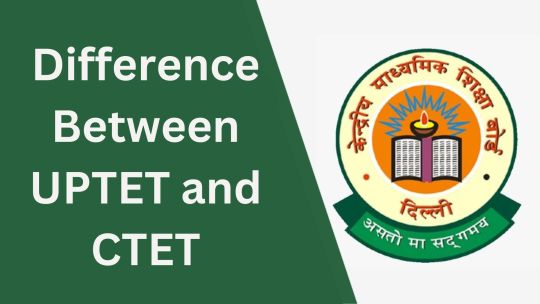
For individuals aspiring to become teachers in India, understanding the nuances of various teacher eligibility tests (TETs) is crucial. Two of the most prominent TETs in the country are the Uttar Pradesh Teacher Eligibility Test (UPTET) and the Central Teacher Eligibility Test (CTET). While both serve the purpose of assessing candidates' eligibility for teaching positions, there are several key differences between them. Let's explore these dissimilarities to gain a better understanding:
1. Conducting Authority
UPTET: The UPTET is conducted by the Uttar Pradesh Basic Education Board (UPBEB), which is responsible for primary and upper primary education in the state of Uttar Pradesh.
CTET: On the other hand, the CTET is conducted by the Central Board of Secondary Education (CBSE), a national-level educational board responsible for conducting various examinations, including the CTET, across India.
2. Scope of Eligibility
UPTET: The UPTET primarily focuses on assessing the eligibility of candidates who wish to teach in schools within the state of Uttar Pradesh.
CTET: In contrast, the CTET is a national-level examination, and candidates who qualify can apply for teaching positions in schools affiliated with the Central Government (KVS, NVS, Central Tibetan Schools, etc.) as well as schools under the administrative control of Union Territories.
3. Examination Pattern
UPTET: The UPTET consists of two papers – Paper 1 for candidates aspiring to teach classes 1 to 5, and Paper 2 for candidates aspiring to teach classes 6 to 8.
CTET: Similarly, the CTET also comprises two papers – Paper 1 for teaching classes 1 to 5 (Primary Stage) and Paper 2 for teaching classes 6 to 8 (Elementary Stage).
4. Syllabus
UPTET: The syllabus for UPTET includes topics such as Child Development and Pedagogy, Language I (Hindi), Language II (English or Sanskrit), Mathematics, and Environmental Studies (for Paper 1), and Child Development and Pedagogy, Language I and II, Mathematics and Science, Social Studies/Social Science (for Paper 2).
CTET: The CTET syllabus covers similar topics but may have slight variations. It includes Child Development and Pedagogy, Language I (compulsory), Language II (compulsory), Mathematics, Environmental Studies (for Paper 1), and Child Development and Pedagogy, Language I and II, Mathematics and Science, Social Studies/Social Science (for Paper 2).
5. Validity
UPTET: The UPTET certificate is valid for a period of five years from the date of declaration of the result.
CTET: In contrast, the CTET certificate is valid for seven years from the date of declaration of the result.
6. Recognition
UPTET: The UPTET is recognized primarily by the state government of Uttar Pradesh and its affiliated institutions.
CTET: The CTET is recognized by the Central Government, Union Territories, and various institutions affiliated with the CBSE across India.
Conclusion
While both the UPTET and CTET serve as benchmarks for assessing the eligibility of candidates aspiring to become teachers, they differ in terms of conducting authority, scope of eligibility, examination pattern, syllabus, validity, and recognition. Aspirants should carefully consider these differences and choose the appropriate exam based on their career goals and preferences.
This article was originally published by medium.com/@upsccourses. Read the original article here.
youtube
#ctet exam pattern#ctet exam pattern 2024#ctet exam pattern paper 1#ctet exam pattern paper 2#ctet syllabus#Youtube
0 notes
Text
How to Download CTET Certificate?

If you've successfully cleared the Central Teacher Eligibility Test (CTET), congratulations! Now, you might be wondering how to obtain your CTET certificate, which is an essential document for securing teaching positions in government schools across India. Here's a step-by-step guide to help you download your CTET certificate:
1. Visit the Official CTET Website
To initiate the process, visit the official website of the Central Board of Secondary Education (CBSE) dedicated to the CTET exam.
2. Navigate to the CTET Section
Once on the CBSE website, navigate to the section specifically designated for the CTET exam. You can usually find this section under the "Examinations" or "Teacher Eligibility Test" category.
3. Click on the CTET Certificate Link
Look for the link related to downloading the CTET certificate. It may be labeled as "CTET Certificate" or something similar. Click on this link to proceed.
4. Log in to Your Account
To access your CTET certificate, you will need to log in to your account using the credentials you used during the registration process. Enter your login ID and password correctly to proceed.
5. Locate the Certificate Download Option
Once logged in, navigate to the section where you can find options related to your CTET exam results and certificates. Look for the specific option to download your CTET certificate.
6. Verify Your Details
Before downloading the certificate, ensure that all the details mentioned on it are accurate and match the information you provided during the registration process. Double-check your name, roll number, and other personal details.
7. Download Your CTET Certificate
After verifying the details, click on the download button or link provided next to your CTET certificate. The certificate is usually available in PDF format. Download it to your device.
8. Save and Print Your Certificate
Once the download is complete, save the PDF file securely on your device. It's advisable to also take a printout of the certificate. Having a physical copy is useful for future reference and during job interviews.
9. Keep Your Certificate Safe
Your CTET certificate is a valuable document that validates your eligibility for teaching positions. Store it safely in a designated folder or file to prevent any damage or loss.
10. Utilize Your CTET Certificate
With your CTET certificate in hand, you are now eligible to apply for teaching positions in government schools across India. Make sure to include it in your job applications and showcase it during interviews.
By following these simple steps, you can easily download your CTET certificate and kickstart your career in the field of education. Congratulations again on clearing the CTET exam!
This article was originally published by medium.com/@upsccourses. Read the original article here.
youtube
#ctet exam pattern#ctet exam pattern 2024#ctet exam pattern paper 1#ctet exam pattern paper 2#ctet syllabus#Youtube
0 notes
Text
What is the CTET Exam?
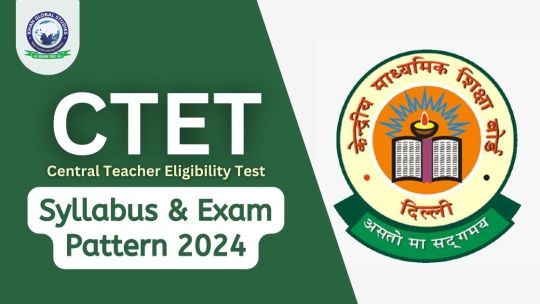
The Central Teacher Eligibility Test (CTET) is a national-level examination conducted by the Central Board of Secondary Education (CBSE) in India. It's an essential eligibility criterion for candidates aspiring to become teachers in government schools from Class 1 to 8.
Purpose of CTET Exam
The primary purpose of the CTET exam is to ensure that candidates possess the essential aptitude and ability to meet the challenges of teaching at the primary and upper primary levels.
Eligibility Criteria
To be eligible for the CTET exam, candidates must meet certain criteria regarding their educational qualifications and age.
Educational Qualifications
Candidates applying for the primary stage (Class 1 to 5) should have passed Senior Secondary (or its equivalent) with at least 50% marks. Those applying for the elementary stage (Class 6 to 8) should have a graduation degree.
Age Limit
There is no upper age limit for appearing in the CTET exam.
Exam Pattern
The CTET exam is conducted in two papers: Paper 1 for primary stage teachers and Paper 2 for elementary stage teachers.
Paper 1: Primary Stage
Paper 1 is for candidates aspiring to teach classes 1 to 5. It includes sections on Child Development and Pedagogy, Language I (compulsory), Language II (compulsory), Mathematics, Environmental Studies.
Paper 2: Elementary Stage
Paper 2 is for candidates aspiring to teach classes 6 to 8. It includes sections on Child Development and Pedagogy, Language I (compulsory), Language II (compulsory), Mathematics and Science (for Mathematics and Science teachers), Social Studies/Social Science (for Social Studies/Social Science teachers).
Syllabus
The syllabus for both papers covers topics related to Child Development and Pedagogy, Languages, Mathematics, Environmental Studies, Science, and Social Studies.
Registration Process
Candidates can register for the CTET exam online by filling out the application form available on the official website. They must also pay the prescribed application fee.
Admit Card
The CTET admit card is issued to registered candidates a few weeks before the exam date. It contains essential details like the candidate's name, roll number, exam center, and timings.
Exam Centers
The exam is conducted at various centers across the country to accommodate candidates from different regions.
Preparation Tips
Aspirants can prepare for the CTET exam by studying relevant textbooks, solving previous years' question papers, and taking mock tests to assess their preparation level.
Significance of CTET Certification
A CTET certificate is mandatory for securing a teaching job in government schools across India. It validates the candidate's eligibility and proficiency in teaching.
Validity of CTET Certificate
The CTET certificate is valid for seven years from the date of declaration of result for all categories.
Results and Score Validity
Candidates who qualify for the CTET exam receive a scorecard detailing their performance. The score is valid for seven years, and candidates can appear for teaching job interviews during this period.
Career Opportunities After CTET
CTET certification opens doors to various teaching opportunities in government schools at the primary and upper primary levels. It enhances the prospects of securing a stable and rewarding career in the field of education.
Challenges Faced by Aspirants
While preparing for the CTET exam, aspirants may face challenges such as extensive syllabus, tough competition, and the need for effective time management.
Conclusion
The CTET exam serves as a gateway for aspiring teachers to kick start their career in the field of education. By ensuring that candidates possess the necessary skills and knowledge, it plays a crucial role in maintaining the quality of teaching in government schools across India.
This article was originally published by medium.com/@upsccourses. Read the original article here.
youtube
#ctet exam pattern#ctet exam pattern 2024#ctet exam pattern paper 1#ctet exam pattern paper 2#ctet syllabus#Youtube
0 notes
Text
Finding the Best Website for UPSC Current Affairs: Your Ultimate Guide

In the journey towards cracking the esteemed UPSC (Union Public Service Commission) examinations, staying updated with current affairs is indispensable. With the plethora of websites available, each claiming to be the best for UPSC current affairs, aspirants often find themselves at a crossroads. In this article, we'll explore the criteria for selecting the ideal website for today's current affairs relevant to UPSC and recommend some top contenders.
Why Choosing the Right Website for UPSC Current Affairs Matters?
UPSC exams demand a comprehensive understanding of current events, policies, and socio-economic developments. A reliable website for today's current affairs upsc not only provides timely updates but also offers insightful analysis, editorials, and opinion pieces essential for exam preparation.
Key Factors to Consider
1. Credibility and Authenticity:
Look for websites backed by reputable news agencies, government bodies, or renowned publishers. Ensure that the information provided is accurate, unbiased, and verifiable.
2. Comprehensiveness of Coverage:
The ideal website should cover a wide range of topics, including national and international news, government schemes, reports, indices, and editorials, to offer a holistic understanding of current affairs.
3. Timeliness and Regular Updates:
Choose a website that updates its content regularly, preferably multiple times a day, to ensure you stay abreast of the latest developments and events.
4. Quality of Analysis:
Seek websites that provide in-depth analysis, expert opinions, and perspectives on significant issues, helping you grasp the nuances and implications of current affairs.
5. User-Friendly Interface:
Opt for websites with intuitive navigation, well-organized content, and search functionality, facilitating seamless browsing and retrieval of information.
Top Websites for UPSC Current Affairs
1. The Hindu:
Renowned for its comprehensive coverage and in-depth analysis, The Hindu is a favorite among UPSC aspirants. Its editorials, op-eds, and special supplements provide valuable insights into contemporary issues.
2. Press Information Bureau (PIB):
As the official nodal agency of the Government of India for disseminating information to the media, PIB offers authentic and timely updates on government policies, initiatives, and press releases.
3. Rajya Sabha TV (RSTV):
RSTV provides coverage of parliamentary proceedings, debates, discussions, and interviews with policymakers, offering valuable insights into legislative matters and governance.
4. PRS Legislative Research:
PRS Legislative Research specializes in analyzing legislative developments, bills, and policy reforms, aiding aspirants in understanding the legislative framework and its implications.
5. Civil Services Chronicle (CSC):
CSC publishes a monthly magazine covering current affairs, debates, and analysis relevant to UPSC exams. Its concise yet comprehensive coverage makes it a popular choice among aspirants.
6. Khan Global Studies (KGS)
Khan Global Studies is a premier educational institute dedicated to providing comprehensive preparation for the UPSC (Union Public Service Commission) examinations. With a focus on UPSC current affairs, our institute offers tailored courses designed to equip aspirants with the latest knowledge and insights crucial for success in these highly competitive exams.
Conclusion
Selecting the best website for UPSC current affairs is crucial for effective exam preparation. By considering factors like credibility, comprehensiveness, timeliness, analysis, and user experience, aspirants can make informed choices and streamline their study regimen. Remember, it's not just about staying updated but also about understanding and analyzing the events shaping our world.
This article was originally published by medium.com/@upsccourses. Read the original article here.
youtube
0 notes